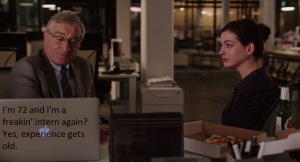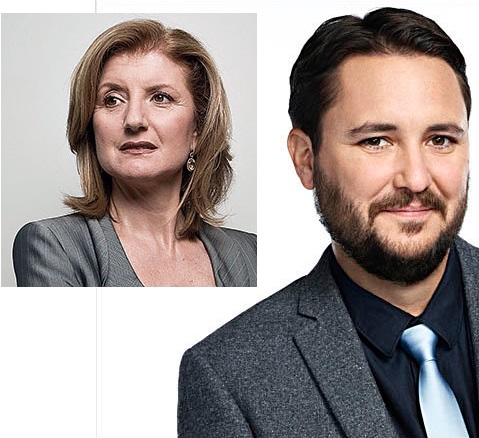 aNewDomain — Will Wheaton recently declined an “opportunity” to be featured by The Huffington Post.
aNewDomain — Will Wheaton recently declined an “opportunity” to be featured by The Huffington Post.
He cites a conversation in which he asked how much he would be paid, and the editor said only exposure. Wheaton apparently holds no ill will towards the person with whom he interacted, and he politely declined.
His fame would bring a lot of traffic to the news aggregator’s site. Will Wheaton, in other words, does not need hits and exposure: The Huffington Post does. Wheaton says they made $50 million dollars. HuffPo execs say they made $146 billion in revenue but actually just broke even on that figure. No profits on that much revenue? Really. What the hell did they spend it on?
The Huffington Post is a news aggregator that reposts material from around the Internet and posts blogs from unpaid writers. Does it really have $146 billion in electricity costs and server farms, or does this money all go to keep Arianna Huffington in high heels? Clearly we are missing something here.
 But does it matter? Not really.
But does it matter? Not really.
Writers are, like everyone else, being devalued by a free market that wants everything to be free. You read free e-books, watch unscripted TV shows, take free courses online at Khan Academy.
So who writes stuff? I mean, quality stuff. Who writes it?
Did you know that when I publish a novel, some companies offer that novel for sale for less than I’m selling it for and, if you buy from them, they immediately refund your money? All they wanted was the site hit. That’s it, nothing but a click-through for ad revenue or something, I don’t even understand it.
And you see all the little ads around nearly any blog post you read, and they’re all click-baity and sordid?
“Celebrities you didn’t know were gay,” and “Celebrities who found out their spouses were gay a little too late,” and “Celebrities you didn’t know wore hair pieces,” stuff like that?
When you click over to those pages, you get so many ads and malware that your computer slows down until you close that page.
Is that shit well written?
When the whole world is based on selling ads so people can sell you products you don’t need, what happens to writing? To anything?
Jeb Bush just said that we don’t need any more psychologists. We just need people who, you know, do useful, monetized things like good little capitalist wage-slaves.
And that’s how it is out here.
I think I’m a pretty good writer, but unless I bombard you with increasingly tiresome marketing posts on social media, what’s that worth? How else am I to sell books? In other words, even the best writer in the world these days needs to know how to market.
I did a column for a few years for which I was uncompensated. The people who ran it, they were good folks. They could probably have afforded to pay and for sure would have gotten a lot more material for their site if they did but, ultimately, they made a financial choice.
When they stopped publication a year or so ago, I was lucky enough to get picked up here. And here, I get paid. Not Will Wheaton money, for sure, but a professional rate.
My editor, she likes what I do. I don’t get as many hits, don’t go as viral as some of the other writers, and this is a tech site – not a social issues site or an existential psychology site or an academics site.
But she thinks it’s worth paying writers to write, so she keeps me around.

The thing is, back then, I was entry-level. I couldn’t afford to say “no” to any chance for exposure, practice, guidance.
Now, I can afford to say “no” to working for free.
But this is also about the rest of us. I don’t have a psychology license because I would have to work for free for another year to get it, to accumulate the clinical hours. I can’t afford to do that, to be exploited labor another year, because the free market means most of us work for nothing or nearly nothing while Huffington Post makes $168 billion dollars off of us and says it made nothing. We’re all doing it. Internships and volunteering and off-the-clock hours, uncompensated overtime.
Will Wheaton could afford to work for free, for exposure. He could afford to say “no.” Good for him.
I mean that: Good for you, Will.
Thanks for saying no to exploitation. Because if someone like Wheaton is willing to work for exposure, what are the rest of us supposed to do? What is the value of a relative unknown like me when even my literary heroes can’t get published anymore, when even they have to do their own marketing on Fakesbook and Twitter?
See, it’s the poor who are the most exploited. We say “yes” because we don’t have any other options.
It’s the adjunct faculty, the part-time McDonald’s workers, the undocumented laborers who have no better choices.
We say yes to exploitation because the choice isn’t to go out and get a better job, it’s to take it or leave it.
For aNewDomain, I’m Jason Dias.
Cover image: Jason Dias for aNewDomain, All Rights Reserved.
Inside image of money: ArioonKathleenBrindley.com, All Rights Reserved; all other inside images by Jason Dias for aNewDomain, All Rights Reserved.














